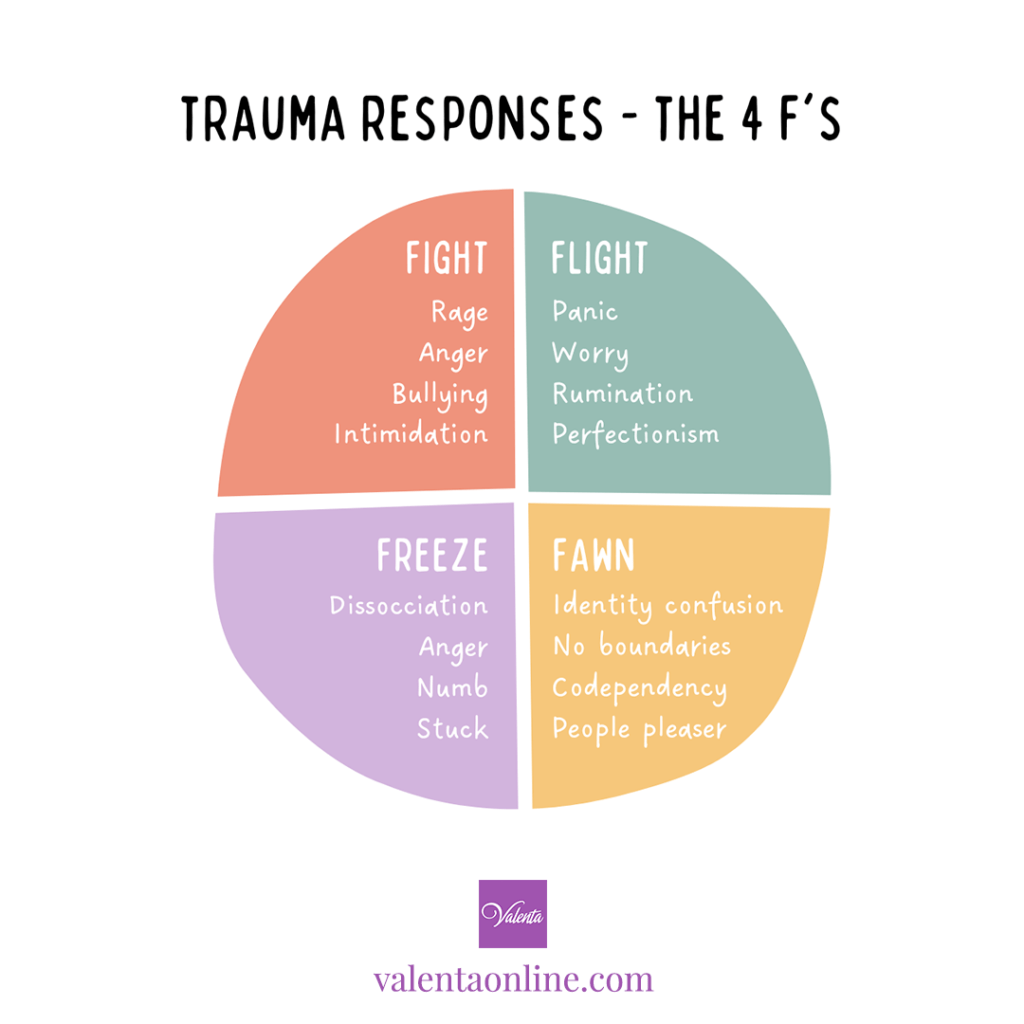Mental health is a vital aspect of our overall well-being, and it is essential to prioritize it. Unfortunately, many people struggle with mental health issues, and one area that has gained significant attention in recent years is trauma responses. Trauma responses are instinctive and automatic reactions to overwhelming and traumatic events. They are designed to protect us from further harm and help us cope with the overwhelming emotions that follow a traumatic experience.
One widely recognized model of trauma responses is the 4 F's, which stands for Fight, Flight, Freeze, and Fawn. Each of these responses has unique characteristics and manifestations.
Fight Trauma Response
The Fight response involves intense anger, rage, bullying, and intimidation. When we experience a traumatic event, our bodies may respond by becoming angry and aggressive as a way to protect ourselves. We may feel a strong urge to fight back and defend ourselves from the perceived threat.
Flight Trauma Response
The Flight response manifests as panic, worry, rumination, and perfectionism. This response is characterized by a need to escape the perceived threat. We may become hyper-vigilant and constantly on edge, always looking for a way out of the situation. We may also ruminate on the traumatic event, obsessively thinking about what happened and what could have been done differently.
Freeze Trauma Response
The Freeze response is characterized by dissociation, feeling numb, and being stuck. When we experience trauma, our bodies may shut down as a way to protect ourselves. We may feel disconnected from our emotions, and our bodies may become numb. We may also feel stuck, unable to move or take action.
Fawn Trauma Response
The Fawn response entails identity confusion, having no boundaries, codependency, and being a people pleaser. This response involves a need to appease the perceived threat, often at the expense of our own needs and well-being. We may feel confused about our identity and our boundaries, and we may become overly dependent on others for validation and approval.
Understanding our trauma responses can help us recognize when we are experiencing a trigger or an overwhelming situation. It allows us to identify our reactions and choose how we want to respond consciously. We can also learn ways to manage our reactions and move towards healing and recovery.

How To Manage Your Trauma
One way to manage trauma responses is through therapy. Therapy provides a safe and supportive space to explore our feelings and experiences. A therapist can help us identify our trauma responses, understand their origins, and develop coping strategies to manage them.
Another way to manage trauma responses is through self-care. Self-care involves engaging in activities that promote our physical, mental, and emotional well-being. This can include exercise, healthy eating, mindfulness practices, and spending time with loved ones.
It is also essential to practice self-compassion when dealing with trauma responses. Self-compassion involves treating ourselves with kindness and understanding. We can learn to be gentle with ourselves and acknowledge that our trauma responses are a natural and normal part of our body's response to traumatic experiences.
In addition to individual approaches, there are also societal and cultural approaches to managing trauma responses. This involves creating a culture that supports mental health and recognizes the importance of trauma-informed care. This can include policies and practices that promote mental health in the workplace, schools, and other institutions.
It is also essential to address systemic issues that contribute to trauma. This can include addressing social inequality and creating policies that support marginalized communities. By addressing the root causes of trauma, we can create a more supportive and equitable society for everyone.
In conclusion, mental health is a critical component of our lives, and it is essential to prioritize it. Trauma responses are a natural and normal part of our body's response to traumatic experiences. By understanding the 4 F's, we can recognize our responses and take steps to manage them. Through therapy, self-care, and self-compassion, we can move towards healing and recovery.
If you have a friend or family member who is dealing with trauma, anxiety, or PTSD, the best thing you can do is support them in seeking treatment and accessing information. Valenta provides free assessments to help initiate the recovery process.
🏚️ Valenta Mental Health
9479 Haven Avenue
Rancho Cucamonga, California 91730
📞 Eating Disorders: 909-771-8023
📞 Depression/Anxiety: 909-719-7979
-
🗺️ Serving Inland Empire · San Bernardino · Riverside and throughout the State of California


